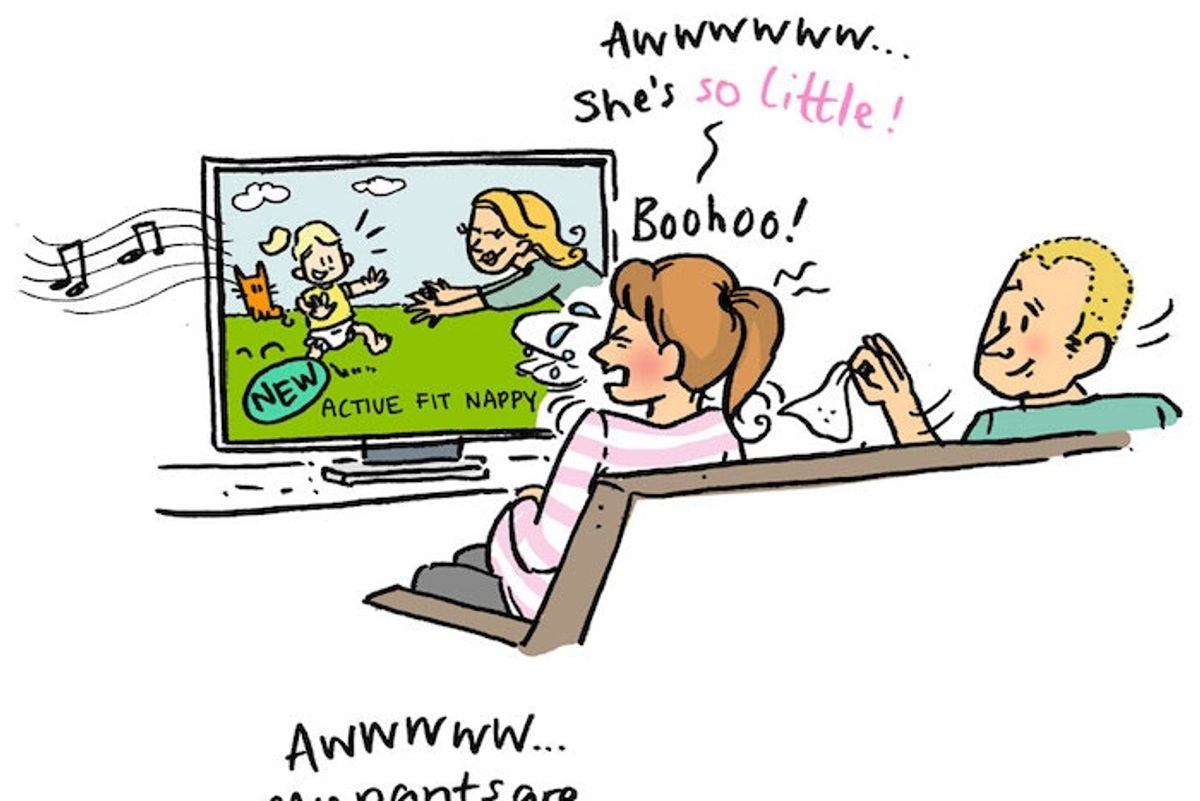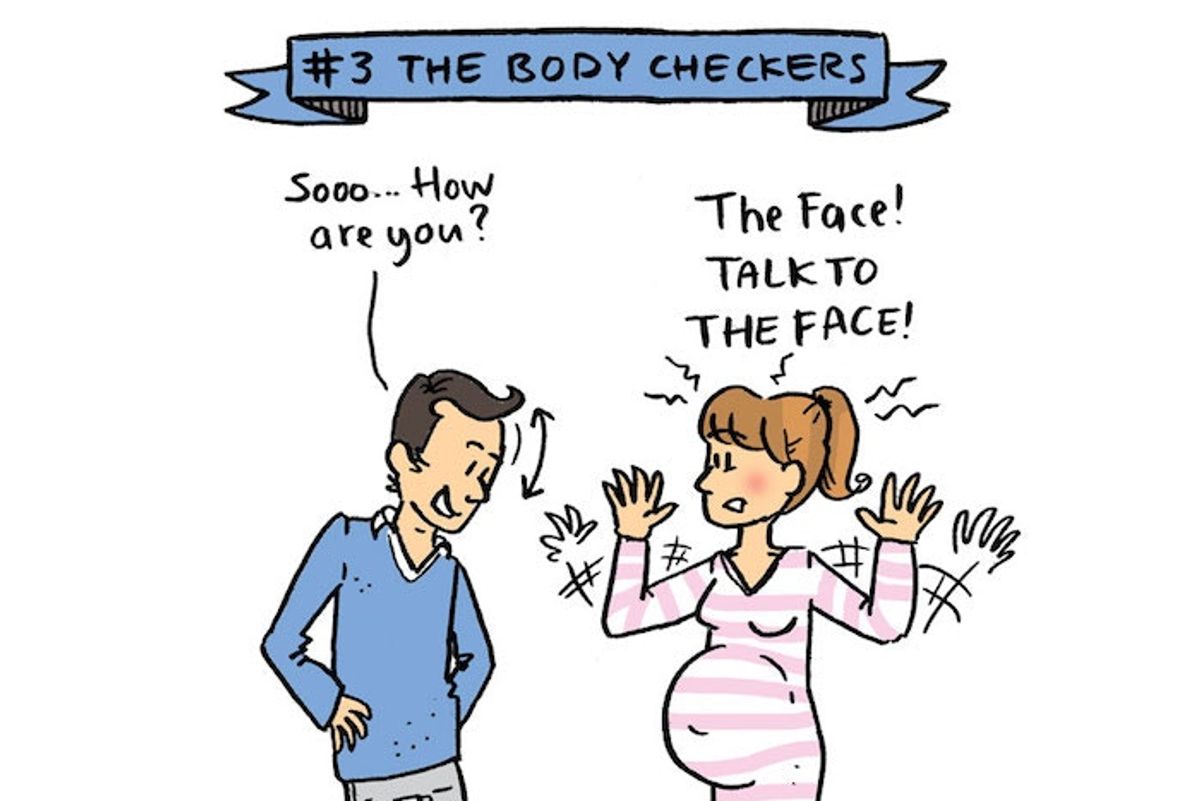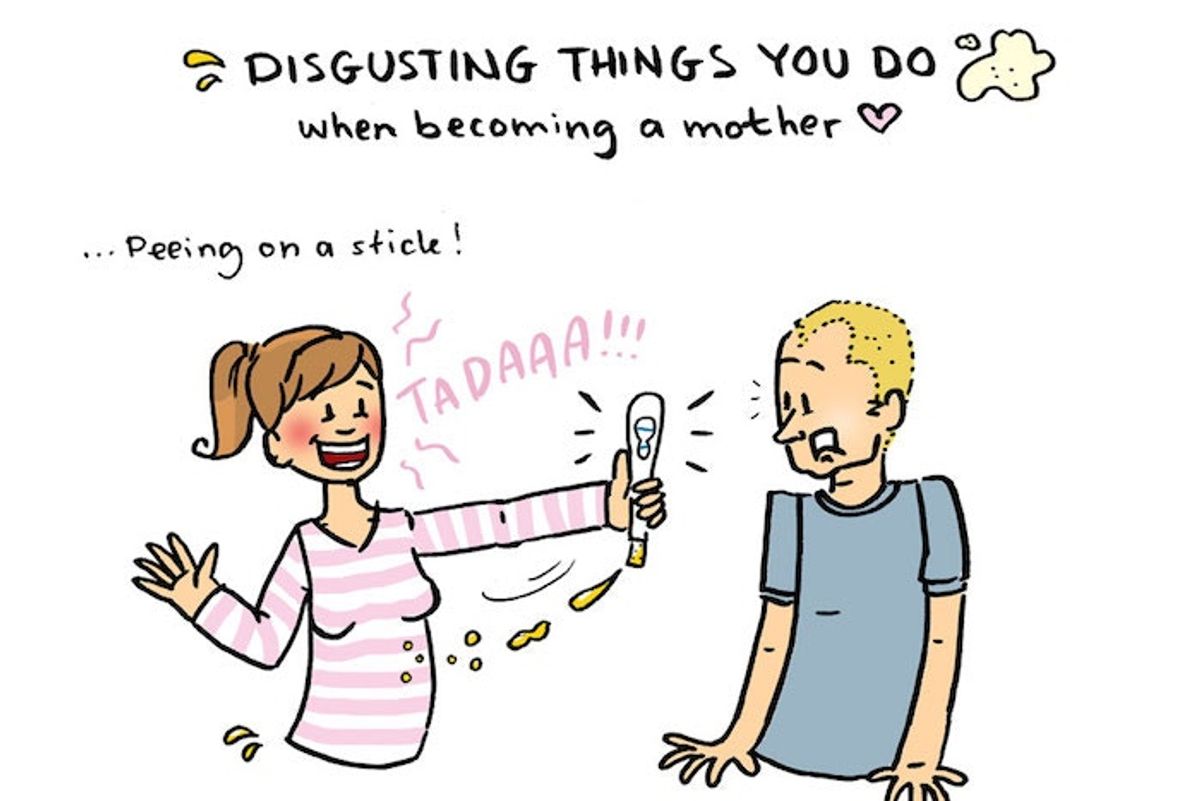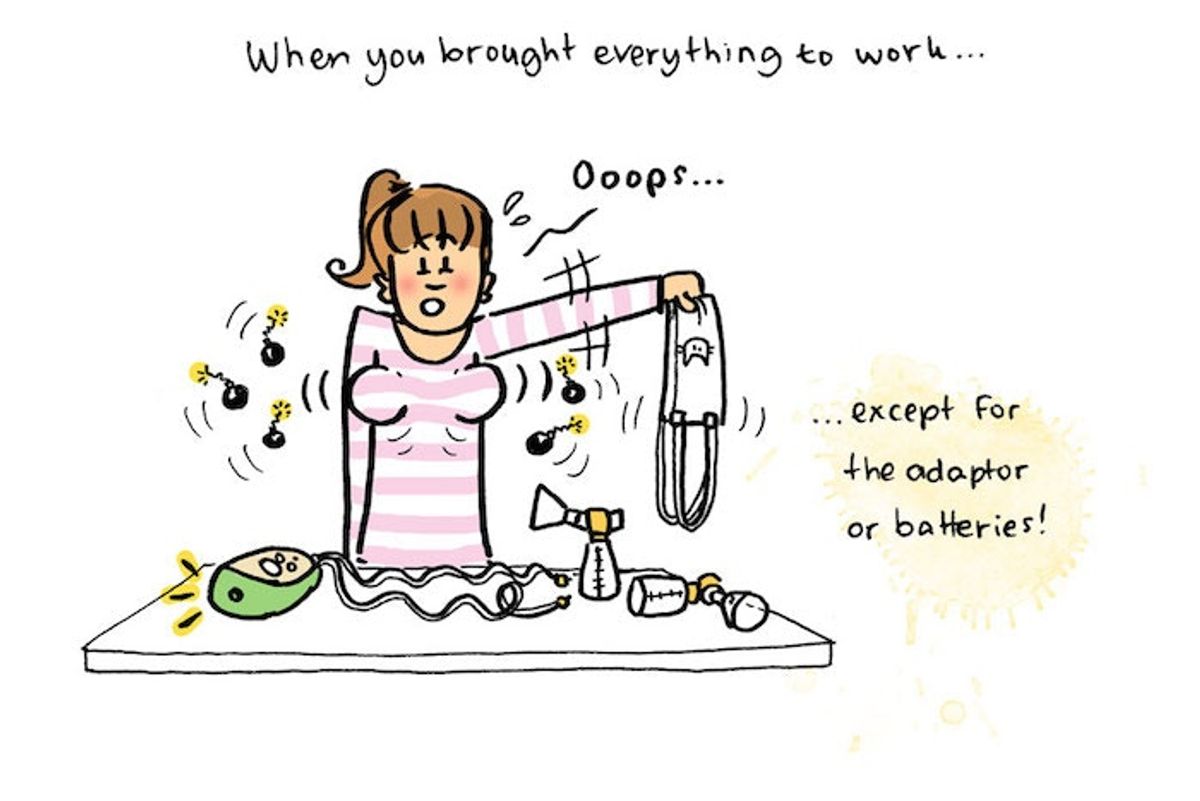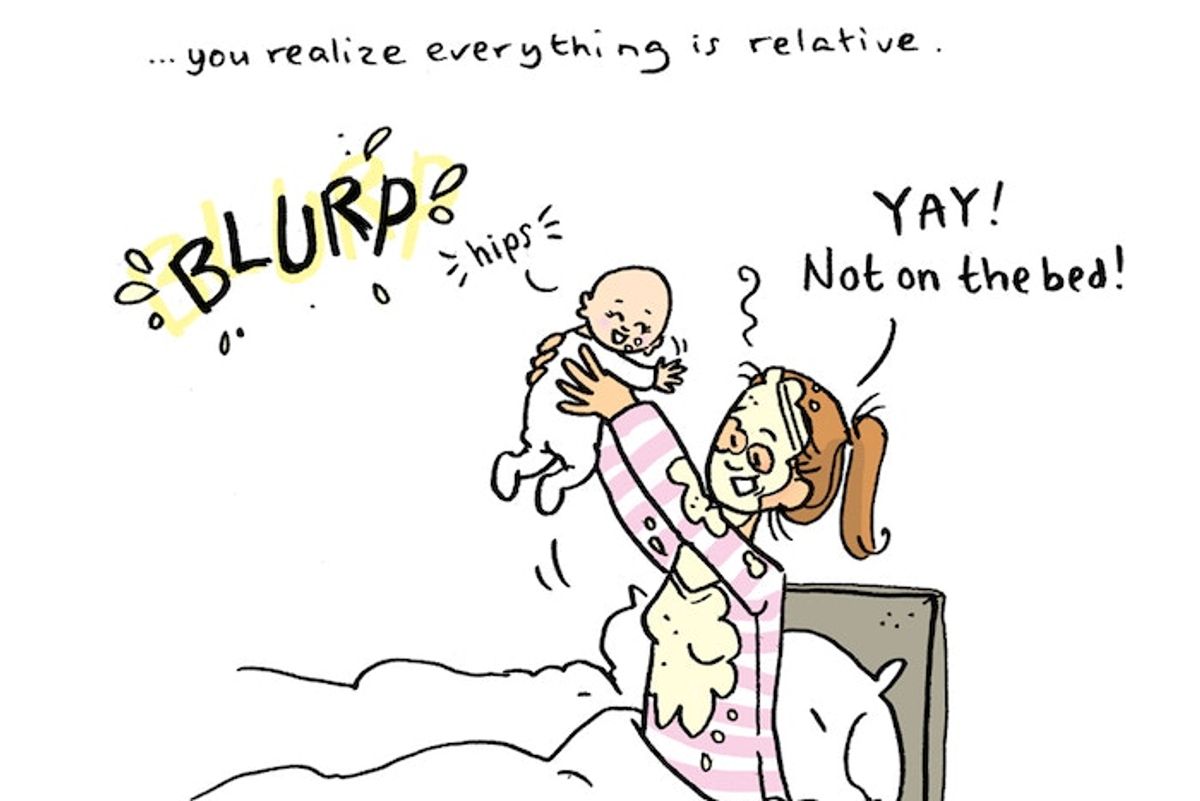Mom flawlessly demonstrates what it looks like to 'respectfully' breastfeed in public
It has nothing to do with how much boob is showing.
Where did we go wrong as a society to make women feel uncomfortable about breastfeeding in public? No one should feel they have the right to tell a woman when, where, and how she can breastfeed. The stigma should be placed on those who have the nerve to tell a woman feeding her child to "Cover up" or to ask "Where's your modesty?"
It's particularly ironic given the immense pressure we put on mothers to breastfeed from the very moment they find out they're pregnant. Everyone's heard the expression that "Breast is best," which guilts moms who might not want or be able to breastfeed. But then, for the ones that do choose that road thinking they'll be appreciated for it, we police when, where, and how they're able to do so. We're cool with it, sort of, as long as it's done "tastefully." Even in situations where it's totally legal and acceptable to breastfeed in public, some people will judge whether she does so "respectfully." When, in reality, the only disrespect is coming from those who are being judgmental about how a woman feeds her child.

One mom is going viral for taking a stand against the idea of "respectful" breastfeeding.
A mother on the Breastfeeding Mom Facebook page posted a powerful image of a woman breastfeeding that shows just what "respectful" breastfeeding looks like.
Spoiler alert: It's really indistinguishable from any other kind of breastfeeding. Here, see for yourself.

"Stop telling moms they need to be respectful when they breastfeed in public," the meme says. "When you can't even respect the fact that a baby has just as much of a right to eat in public as everyone else."
Breasts were made to feed babies. Yes, they also have a role in sexual arousal for both men and women, but there's still debate over whether breasts have been sexualized because of something inherent in our biology or because we've learned to sexualize them through media and culture. Some even argue that we find breasts attractive because they're a signal of a woman's fertility, which brings us right back to babies! Besides, anyone who has the maturity of a sixth grader knows the difference between a sexual act and feeding a child. It's pretty obvious, actually. If the woman is holding a child to her breast, she's not being sexual or indecent.
In fact, we should probably rethink whether the idea that a bare breast is indecent in the first place. Men can show off their nipples in public, why can't women? If anything, the societal expectation should be flipped. Providing necessary nourishment to your baby should be the thing that's completely normal.

The meme was accompanied by a fantastic explanation.
This is how a mother respectfully nurses a baby. With dignity and confidence.
The way someone chooses to nurse a child "doesn't define the amount of respect they have for themselves and doesn't define who they are. We are all human beings and somehow we are divided by something as natural as breastfeeding."
If you choose to cover up, that's awesome. If you don't, that's awesome too. The purpose of nursing isn't about who shows more boob or who doesn't. The purpose is to feed a child. And whether it's done covered, in a private place, or uncovered in the middle of a restaurant, does not define the amount of respect you have. The stigma needs to end. We are just trying to feed our babies.
Legally, mothers in all 50 states are allowed to breastfeed at any location public or private. Workplaces of more than 50 people are also required to provide a private space other than a bathroom for mom's to use for pumping or feeding. Breastfeeding in public can not be considered an act of public indecency or sexual conduct — most states explicitly state as much, and in the others, it's implied by granting mother's the right to legally breastfeed anywhere at any time.
But these legal protections don't stop the stares and the stigma. Advocacy groups continue to fight for laws that would punish bystanders from harassing breastfeeding moms. Sometimes, mothers have even had the police called on them! It's mind-boggling.
Let's stop litigating the amount of boob or nipple that's showing and equating that to "respect" or "decency." The decent thing to do is leave mothers alone and let them do what's necessary.
This article originally appeared six years ago.





 Patagona has always done a great job taking care of its employeesYukiko Matsuoka/Flickr
Patagona has always done a great job taking care of its employeesYukiko Matsuoka/Flickr While nursing my baby during a morning meeting the other day after a…
While nursing my baby during a morning meeting the other day after a… Not sure if Dwight Schrute would be as accomodating.
Not sure if Dwight Schrute would be as accomodating.


